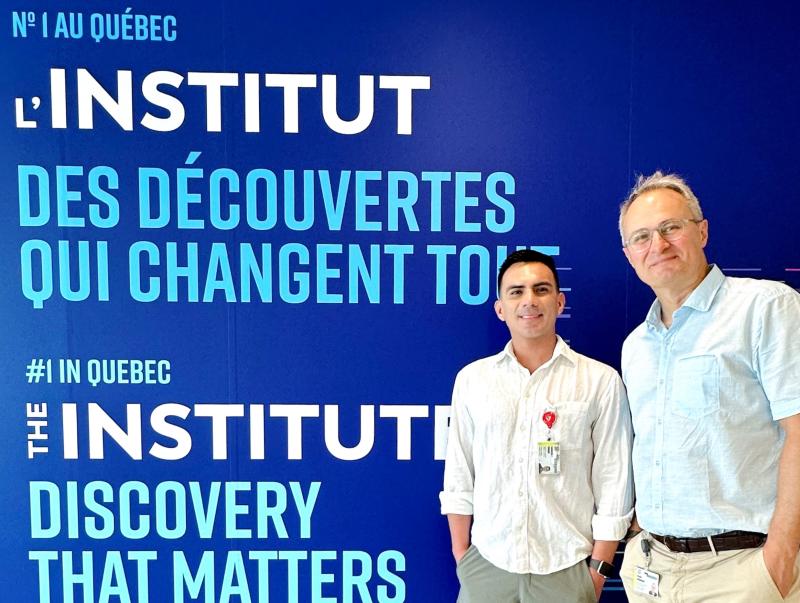New discovery remarkably improves immunotherapy in bladder cancer and beyond
A new preclinical study unveils a more powerful and effective immunotherapy for bladder cancer and other solid tumours.
BCG therapy—the gold standard treatment for non-muscle invasive bladder cancer (NMIBC), where the cancer has not penetrated the muscle layer—is one of the earliest forms of cancer immunotherapy. Now, 50 years after it was first developed from the tuberculosis vaccine, its therapeutic power could be dramatically enhanced by combining it with a natural molecule derived from fungi, as demonstrated by a team of scientists led by Maziar Divangahi, Senior Scientist at the Research Institute of the McGill University Health Centre (The Institute) and Professor in McGill’s Faculty of Medicine and Health Sciences.
First shown to be effective in Canada in the 1970s and adopted worldwide in the 1990s, BCG therapy involves introducing a weakened strain of tuberculosis-causing bacteria directly into the bladder. This trains immune cells to recognize and attack bladder cancer cells. However, up to 60 percent of patients see their cancer return, and the treatment, which requires multiple instillations, can cause side effects such as bladder irritation, pain and flu-like symptoms.

In a remarkable new breakthrough, Dr. Leonardo Jurado, a PhD candidate in Prof. Divangahi’s laboratory at The Institute, has discovered a way to significantly boost the effectiveness of BCG therapy by combining it with a fungal-derived molecule called β-glucan. The study findings are published in the journal Immunity.
“Bladder cancer affects nearly 600,000 people worldwide each year and has the highest recurrence rate of any cancer, which means that many patients continue to experience relapse despite treatment,” says Dr. Jurado, the study’s first author. “It’s incredibly exciting that here in Canada—where BCG immunotherapy was first pioneered—we’re now finding ways to make it even more effective.”
Training stem cells to fight tumours
Using advanced preclinical models, the team found that the combination of BCG and β-Glucan “trains” the body’s innate immune cells, specifically neutrophils, to become potent anti-tumour fighters, boosting the body’s ability to fight cancer. The therapy reprograms stem cells in the bone marrow, producing neutrophils that effectively infiltrate into tumours and prevent tumour’s growth.
“Remarkably, the combined treatment achieved complete tumour eradication and 100 per cent survival in a preclinical murine bladder cancer model,” adds Dr. Jurado, a Colombian physician, like Dr. Alvaro Morales, who spearheaded the use of BCG as a bladder cancer treatment at Queen’s University in Kingston, Ontario in the 1970s.
The new findings suggest that combining BCG with β-Glucan could lead to more effective, longer-lasting treatments, not only for bladder cancer, but potentially for other solid tumours such as melanoma, where the approach also showed promise.
“This opens the door to next-generation cancer immunotherapies by showing that training stem cells—and, in turn, the innate immune cells that serve as our first line of defence—can lead to long-lasting anti-tumour immunity,” says Professor Divangahi. “It’s a made-in-Canada innovation with the potential for global impact.”
The researchers are now planning a clinical trial to test the superiority of this new dual therapy in patients with bladder cancer.
About the study
The study A fungal-derived adjuvant amplifies the antitumoral potency of Bacillus Calmette-Guérin via reprogramming granulopoiesis by Leonardo F. Jurado and Maziar Divangahi et al., was published in Immunity.
DOI: 10.1016/j.immuni.2025.05.026
The research was funded by the Canadian Institutes of Health Research.
Media contact
Bianca Ledoux-Cancilla
Agente de communication, CUSM
[email protected]